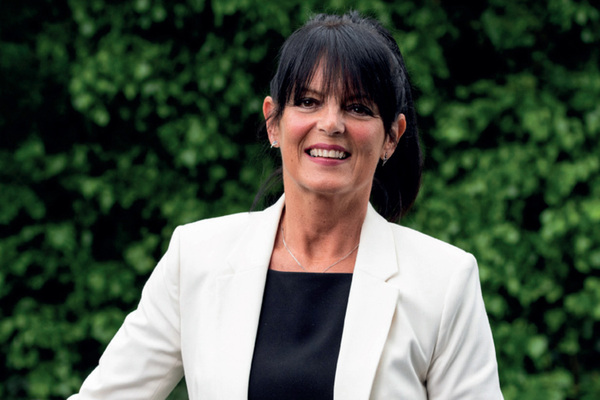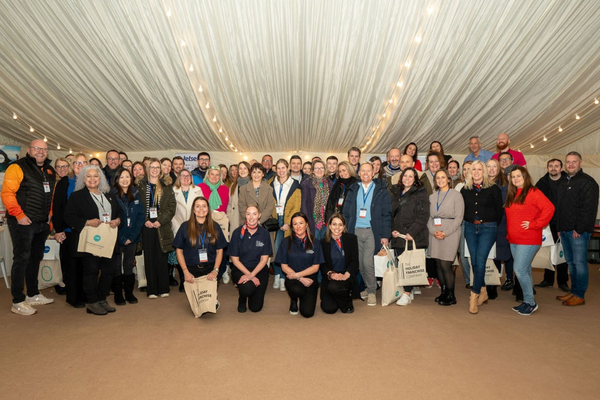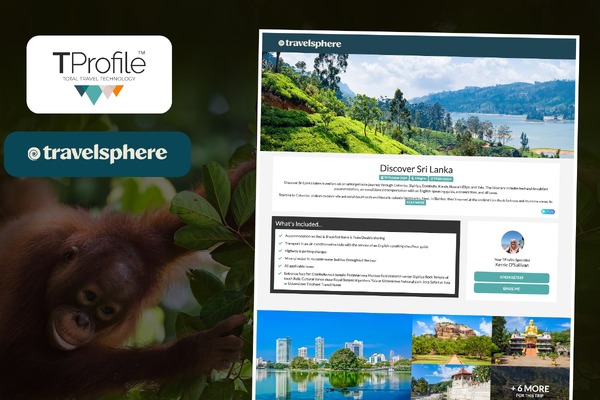'I can't continue at this pace forever': is the travel trade burned out?
 Harry Kemble
Harry KembleWith Covid steadily becoming a distant – if painful – memory for the travel trade, agents are continuing to see business rebound as consumers regain their confidence and flood back into the market.
Around half of the respondents to TTG’s third Travel Agent Tracker of the year, covering trading in the three months to 30 September, said they took more new enquiries in the third-quarter of this year than they did during the same period last year, while 52% said the same of their new sales and bookings during Q3 2023.
But while many agents are clearly converting strong post-pandemic demand for travel into bookings, others are having difficulties; almost a third of respondents (29%) told TTG they were struggling to achieve a good work-life balance.
Marion Owen, owner of Marion Owen Travel, says mundane tasks, such as checking prices with suppliers, now take hours, often eating into her evening. Owen admits her team are suffering too.
More: How to recognise the signs of burnout – and how to treat it
“All three of us are burnt out,” she says. “I’ve never been in the situation where I’ve always got stuff that needs to be done. I don’t know how I’m going to overcome this. I don’t have a work-life balance – I just cannot get away from my desk.
“We’re getting really nice quality bookings in, but jobs that should take a few minutes are taking hours.”
Owen said the situation had deteriorated to the point she has started working from home to try and increase her productivity. In the week she speaks to TTG, she should have been playing golf in Mauritius; the trip, though, was postponed after a friend fell ill – whereby Owen’s mind turned straight back to work.
“Part of me didn’t want to go in the first place because of the work situation,” she admits. "My house is a mess because all I do is work. I cannot continue at this pace forever.”
Kelly Swinger coaches HR leaders and is the author of Mind the Gap: a story of Burnout, Breakthrough and Beyond; she defines burnout as “chronic stress”, and notes: “The closer we get to actual burnout, the less likely we are to recognise it in ourselves.”
Ahead of National Stress Awareness Day on Wednesday (1 November), agents have revealed to TTG how the strain is caused, in part, by hesitant clients. “It’s tough – people are thinking twice about booking,” says Yvonne Holmes, director of Essex-based Classic Travel.
“They think about the cost and want lots of quotes. In the last couple of months, we’ve had a lot of, ‘I’ll let you know when I’m ready to book’ comments from clients. September was tough. I saw some people say they had cracking months, but I’ve not seen that.”
’We’re doing a lot for not much return’
Holmes decided to “consolidate” her agency business after she was diagnosed with Parkinson’s disease in 2020. “I don’t have a shop because I shut it down during Covid – and let four staff go,” she says. “I now work from home.”
She says the difficult decision has paid off, but she has recently started to wonder how long she can continue working with Parkinson’s. “I don’t know if it was the stress that caused my Parkinson’s," she tells TTG. "I get very tired now. Sometimes I think I should pack it in, then I ask myself what would I do all day? I am 65 years old. I’ll see where I am at next year.”
Niall Douglas, managing director of Full Circle Travel, believes some customers are delaying bookings while they shop around for the best price. “If we quote a holiday they can find for thousands cheaper, that doesn’t help us justify the extra service that we offer,” he explains. “We’re seeing tailor-made bookings come in, but nowhere near the levels we expected.”
He insists that Full Circle’s four homeworkers and the business are not struggling generally. However, he adds: “It feels like we’re doing a hell of a lot work for not much return.”
Douglas also highlights the impact of the ongoing conflict between Israel and Hamas on consumer confidence. “We’ve just had a few cancelled bookings,” he says. “They’re nervous and think the world is on fire.”
Staffing and resource is undoubtedly contributing to the stresses and strains for many smaller travel businesses. Bridgit Keevil, owner of Travel Stop, can only fully open one of her four shops – Claydon, just north of Ipswich – throughout the week due to a lack of staff.
But she insists the situation has improved markedly since Covid. “When you’re in the middle of it, you keep on going,” she says, adding: “But when you take a moment and think about it, you do get very tired.
“During the pandemic, all we did was eat, sleep and go to work. It’s not good for you. I’ve now got a better work-life balance; I can go to London and meet a tour operator or whatever. Things have improved. When it’s your own business, you just have to keep on going.”
Burnout ’prevalent throughout Covid’
One way to cope, it seems, is to find an outlet away from selling travel. Douglas went skiing in April with his cousin and completed the 100-mile RideLondon cycle, while Holmes has joined a rock choir.
“It’s really good because I have an outlet,” Holmes chirps. “I love it. We meet once a week and we do gigs and shows. We’re trying to sing at Trafalgar Square before Christmas. I’ve even made some new friends through the choir.”
Holmes, though, admits she has had to decline three fam trip invitations in the last couple of months due to her condition. “I think, ‘Oh God’ when the invitation arrives,” she adds. “I’ve turned a lot of them down.”
Both Owen and Holmes are surprised by the number of agents currently going away on educationals when they themselves are faced with such huge workloads. “It does make me wonder what on Earth all these agents who flit from one educational to another have on their desks,” Owen says.
One agency that has taken decisive action to overcome workplace wellbeing issues, like burnout, is 31-branch agency Althams Travel, which last year revolutionised how it works by switching staff to a four-day working week – with no salary reduction. The effect on staff has been “massive”, the agency’s sales development manager Marie Leach tells TTG.
“Introducing the four-day week has definitely helped our employees with their health and wellbeing,” she notes. “It gives them more time to spend with their families and friends. We now have time to do things like housework.”
Althams has also given staff an extra half an hour in the morning to allow the parents among its workforce to take their children to school. “This is massive for our parents and has also had a big effect on potential burnout,” says Leach.
“Working a five-day week and juggling family life is hard,” she adds. “We’ve always had mental health and wellbeing support for our staff. Burnout was prevalent throughout Covid.”
For advice on how to recognise the signs of burnout – and how to treat it – read our tips from HR coach Kelly Swingler. And please do share your own experiences below, if you’re happy to do so, or get in touch with Harry on hkemble@ttgmedia.com.
The burnout some agents are suffering can no doubt be attributed to Covid-era trends, such as the greater reassurance many clients now need to feel comfortable booking, not to mention the cost of living crisis that is gripping the nation in the wake of the pandemic.
It’s also a symptom of the ongoing staffing challenges many agencies still have post-pandemic, which makes keeping up with renewed demand and increasingly demanding clients all the harder.
For agents like Keevil, the answer is to knuckle down and weather the storm in anticipation of a brighter future. But for others, it's clear the storm clouds are closing in.
James Chapple, news editor, TTG.
Sign up for weekday travel news and analysis straight to your inbox

Harry Kemble
Supplier Directory
Find contacts for 260+ travel suppliers. Type name, company or destination.














